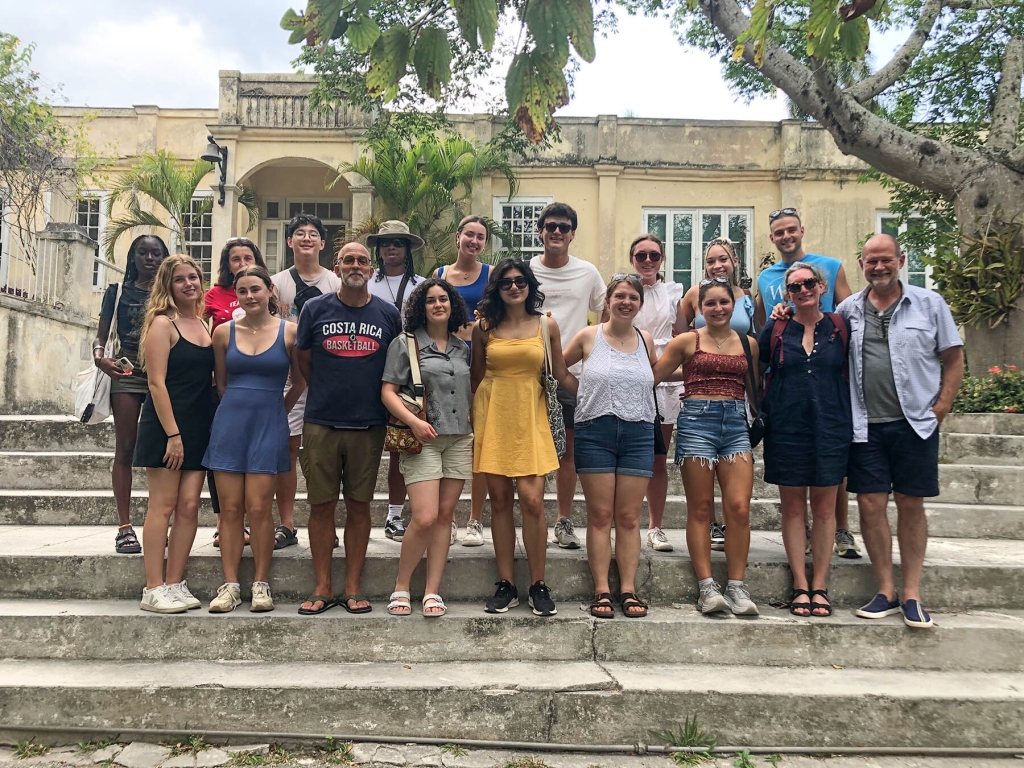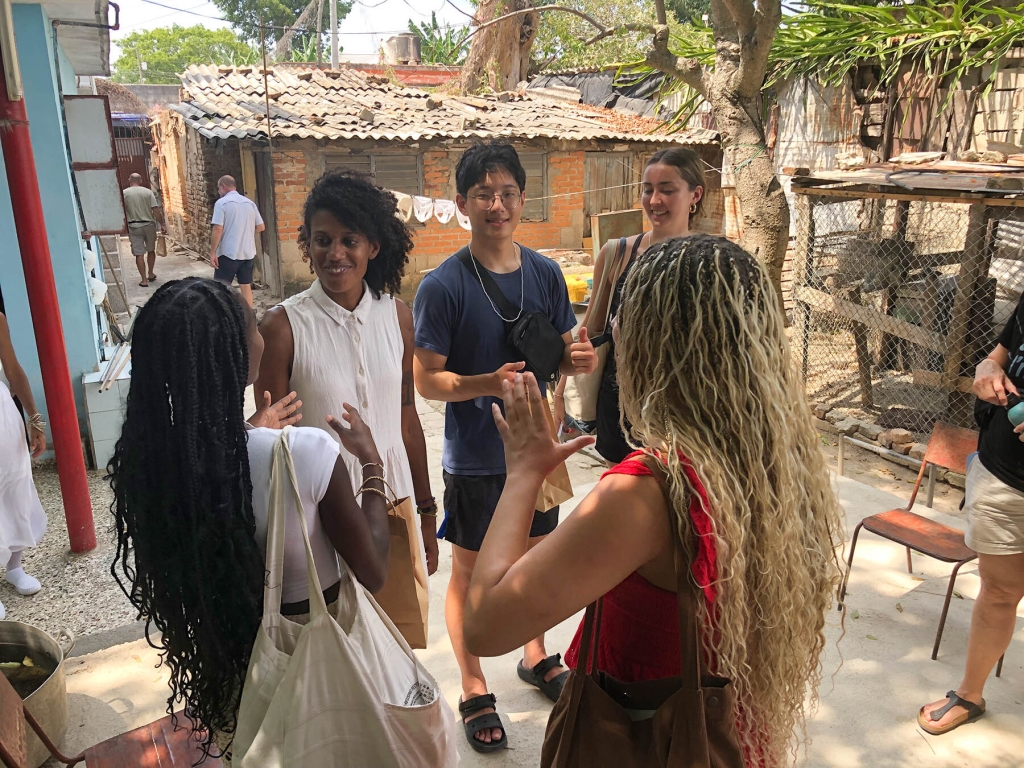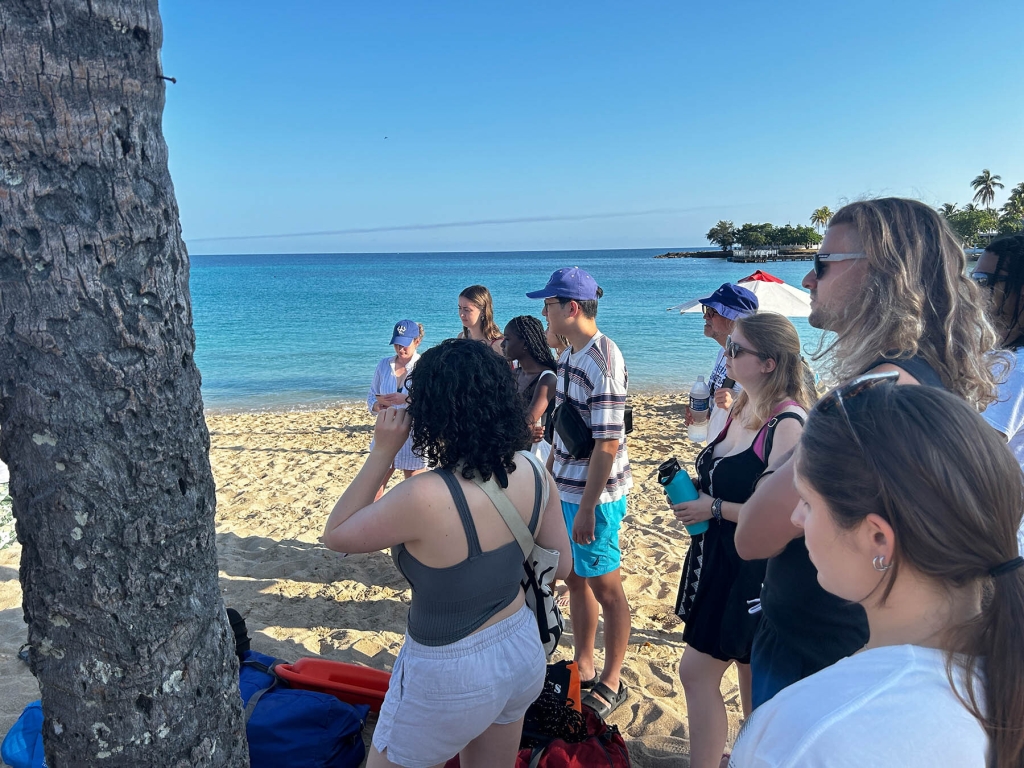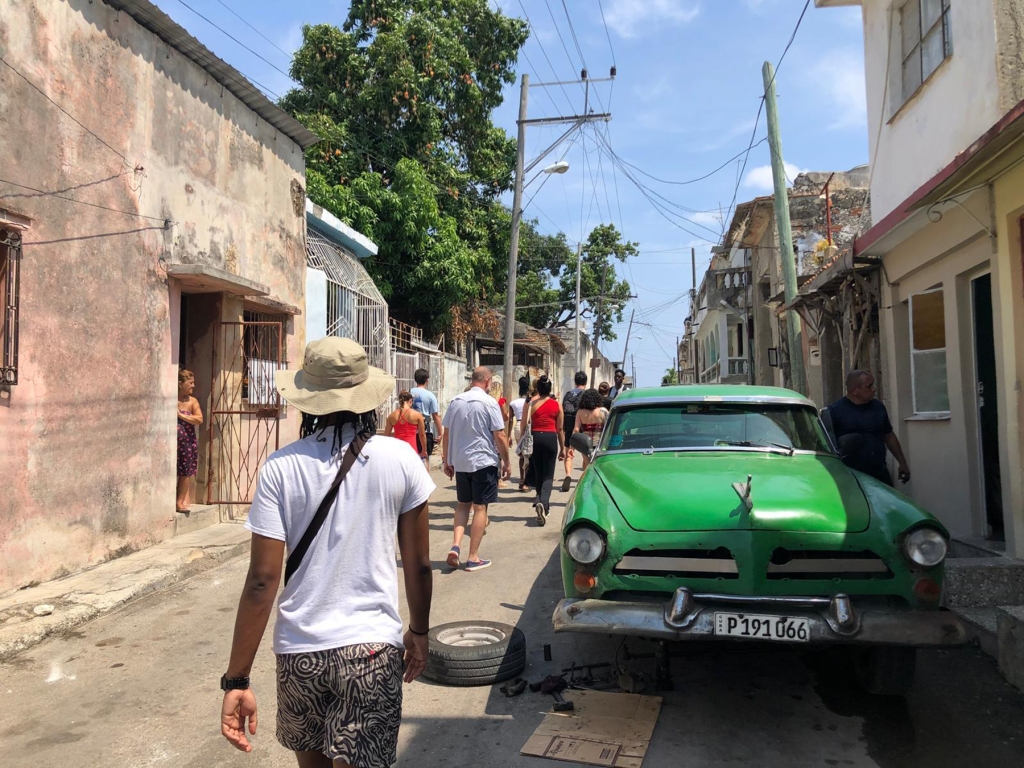Exchange of Ideas A Spring Term Abroad course on social entrepreneurship and sustainability took students to Cuba for an eye-opening cultural exchange.
“This course changed how I view entrepreneurship, and has been the most impactful travel experience I have ever had.”
~ Sophia Soderbergh ’26
The Harte Center was abuzz with activity last week as Washington and Lee University hosted its first U.S.-Cuba Social Entrepreneurship Summit. For students taking this Spring Term’s Sustainable Development and Social Entrepreneurship: Cuba in the 21st Century class, co-taught by Emily Landry, visiting assistant professor of business administration, and Jamie Casey, professor of economics, the summit was a continuation of their work learning from and exchanging ideas with those working in the budding entrepreneurial culture of Cuba.
“This course changed how I view entrepreneurship,” said Sophia Soderbergh ’26, an accounting and studio art double major, “and has been the most impactful travel experience I have ever had.”
The course offered students an opportunity for experiential learning in Cuba. The class spent the first week of Spring Term on campus learning about the history of economic development in Cuba and the recent introduction of market reforms supporting social entrepreneurship before traveling to Havana to learn from Cuban economists, marine scientists, tourism experts and entrepreneurs who are shaping policy and practice in Cuba’s emerging economy. The class also collaborated with students and faculty at the University of Havana on service-learning projects related to coastal preservation and sustainable development. For the final two weeks, the class returned to campus to complete multimedia projects on sustainable economic growth and social entrepreneurship in Havana and the surrounding region. Students presented their final projects to the W&L community at the Spring Term Showcase on May 24.
Entrepreneurship has recently accelerated in Cuba following updates to the constitution, which allow for small and medium enterprises for the first time. Landry and Casey were among an international delegation that presented at the Seminario Taller Sobre Emprendimientos Sociales en Cuba, the first social entrepreneurship summit held in Havana on Nov. 21-22, 2022, and were pleased to be able to host entrepreneurs and thought leaders from Cuba on campus for three days this year. Landry, who has conducted research in Cuba for several years, said her work with the Office of Community-Based Learning’s faculty collaboration cohort helped shape the course’s focus.
“I was attracted to enrolling in the CBL cohort for a lot of the same reasons I wanted to build this course in the first place,” Landry said, “because I think that that kind of community engagement is really effective in learning and teaching and in getting students excited about what they’re doing, when they see the immediate impact their hard work has on the communities they’re working with and building relationships with.”
While in Havana, students met with Adriana Aurelia, founder and CEO of Beyond Roots, an organization dedicated to promoting Afro-Cuban culture through tourism and immersive cultural experiences; Aurelia was part of the delegation that visited campus during the summit and said she loved the opportunity to engage with W&L students.
“My true passion is education,” said Aurelia, who also taught economics at the University of Havana. “I feel inspired by young people who are really trying to make a difference.”
Aurelia said she was excited by the chance to give students “the untold story” of what it takes to be an entrepreneur. “You need to be grounded to grow,” she said. “You need to have time to create your business plan, but you also need to create your life plan — to understand yourself and find spaces where you can connect with your mission and values. When you are in school, that can sound theoretical, but just having a mission is what makes you wake up early in the morning with a smile.”
Each week of the course, students were given prompts they were asked to respond to in handwritten reflection journals, and to submit a photograph that corresponded with each week’s prompt along with a short paragraph explaining how the picture corresponded with the question. At the Spring Term Showcase, students presented six photographs with short narratives chronicling their reflective experiences throughout the course. This, along with case studies on three social enterprises they visited in Cuba that students completed in teams, comprised the final deliverables for the course.
Patrick Solcher ’26, an economics major, said each final assignment challenged him in different ways.
“The case method assignment was not something I was exposed to before,” Solcher said, “but it allowed me to see how businesses can learn from each other in a very constructive way. And the photovoice project is just a more creative way of thinking and of processing your experiences. It’s a way of getting at some of the things you’ve learned perhaps without even fully realizing it.”
Casey said the fact that the students participated in homestays in Cuba created valuable opportunities for informal connections with local people.
“In particular, the chance to interact with other young people is something they couldn’t get from us or a class,” said Casey, who also lead a trip to Cuba in January as part of W&L’s Traveller Program, offered through the Office of Lifelong Learning.
Eric Bazile ’25, a business major minoring in poverty studies and classics, said that in addition to conversations with new friends from his host family’s community in pickup basketball games, he especially appreciated being able to experience the camaraderie of a Spring Term Abroad class.
“If I were to travel on my own, not only would I not get the educational aspects I got from this course, but I would be doing it without the people I went with to Cuba, and that was a large part of the trip for me,” Bazile said.
The class also attended a night market in the National Botanical Garden that was created to allow local entrepreneurs to network and exchange ideas. Landry emphasized the importance of getting to know people during their time in the country and in centering the voices of the Cuban people.
“This is a long-term relationship that we hope we’re establishing now with this project,” Landry said. “Over time, these photographs—if we can repeat this class in the future—will show a progression within the photo essays that cuts across cultural and language barriers.”
 The class in front of Ernest Hemingway’s former home in Cojimar, Cuba.
The class in front of Ernest Hemingway’s former home in Cojimar, Cuba. A site visit to Beyond Roots, which served as one of the class’s case studies
A site visit to Beyond Roots, which served as one of the class’s case studies Students learn about efforts to preserve Cuba’s coastal areas.
Students learn about efforts to preserve Cuba’s coastal areas. Eric Bazile ’25 explores Havana.
Eric Bazile ’25 explores Havana.
You must be logged in to post a comment.